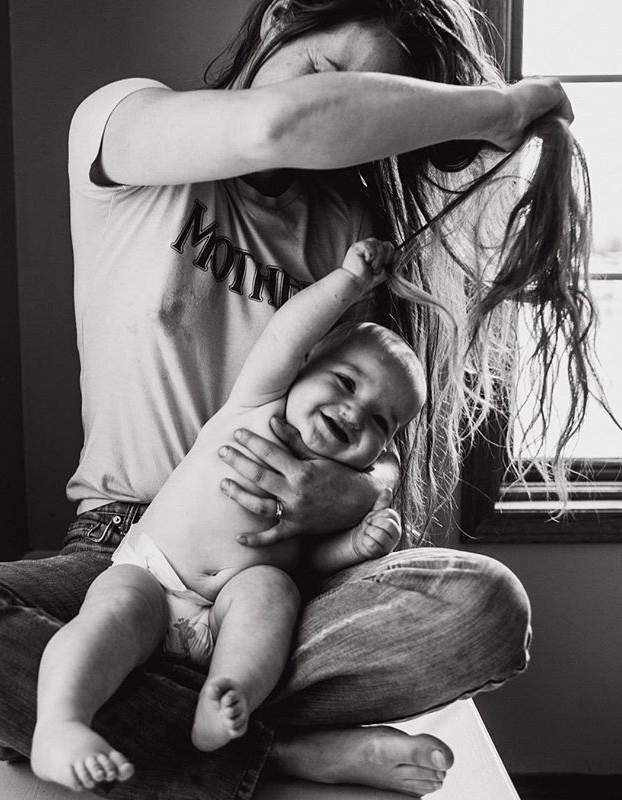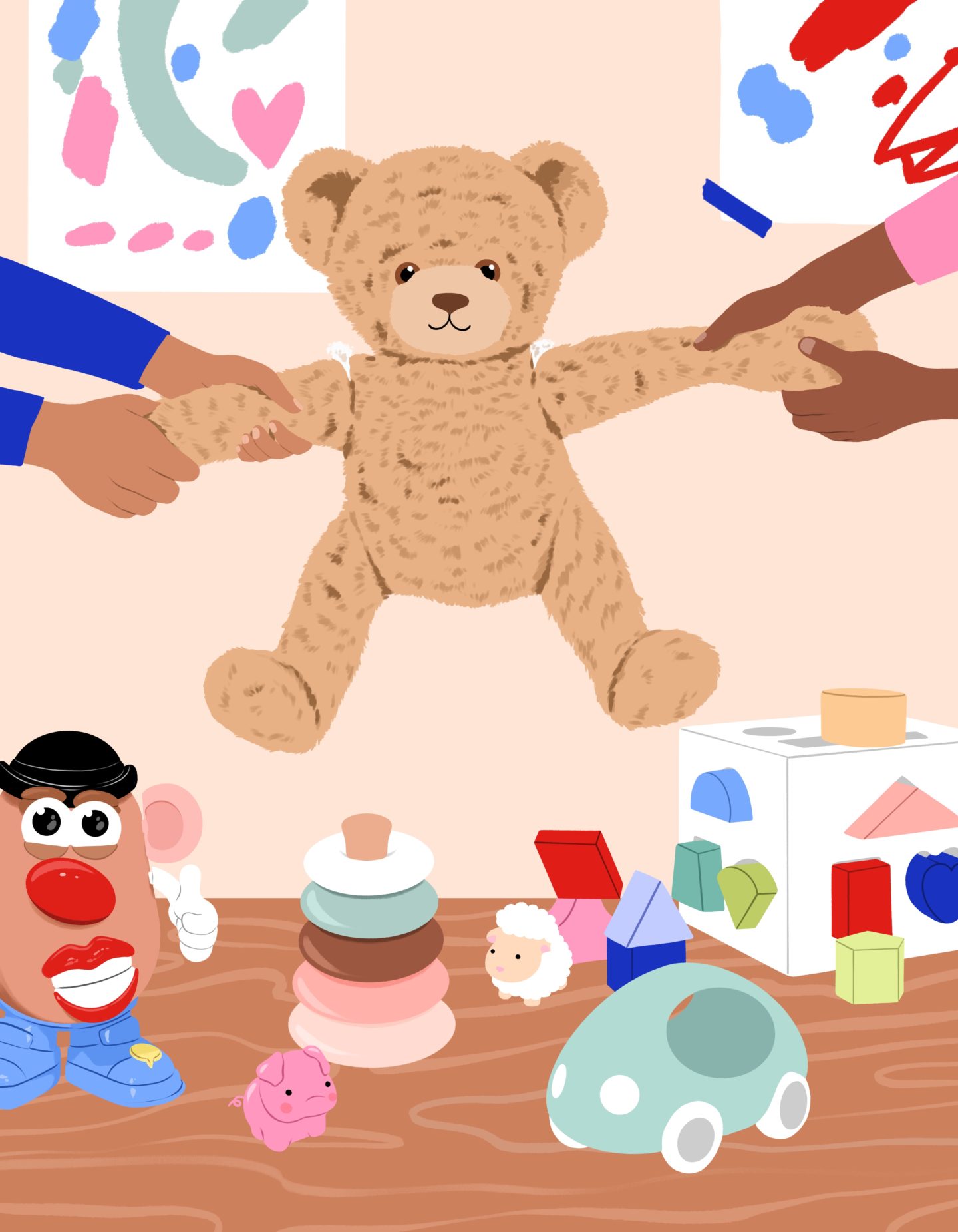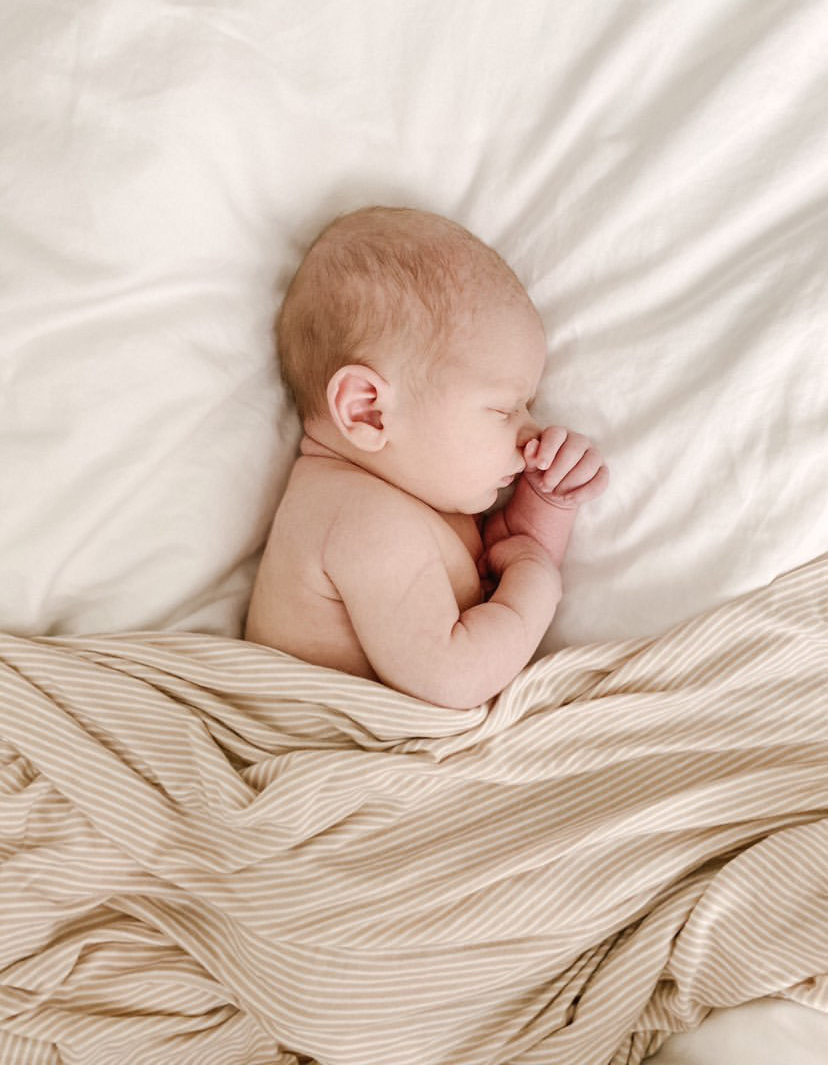 Remember that time you tried being the “cool couple with a baby” at that cozy new brunch spot, only to watch your 8-month-old hurl pieces of mashed up eggs across the room while squealing with joy? Or the time your toddler straight-up smacked a fellow preschooler during open play at the local hell-hole playspace? You shook it off, tried to keep your cool, but inside you were seething and didn’t know how to deal. Well, you’re not alone. For most of us, discipline is a tough nut to crack, an “is it even worth it?” half-assed practice whose measure of success is totally kid-dependent. At best, we attempt to stay consistent and firm, and at worst, we give in and let them stomp all over us.
Remember that time you tried being the “cool couple with a baby” at that cozy new brunch spot, only to watch your 8-month-old hurl pieces of mashed up eggs across the room while squealing with joy? Or the time your toddler straight-up smacked a fellow preschooler during open play at the local hell-hole playspace? You shook it off, tried to keep your cool, but inside you were seething and didn’t know how to deal. Well, you’re not alone. For most of us, discipline is a tough nut to crack, an “is it even worth it?” half-assed practice whose measure of success is totally kid-dependent. At best, we attempt to stay consistent and firm, and at worst, we give in and let them stomp all over us.
In our effort to approach this beast of a subject, we dialed in the expert for a little Discipline 101. If you’re feeling lost at how to best train your child to be the angel you know they are deep down (like, super deep), we called upon our resident parenting expert and developmental psychologist, Aliza Pressman, co-founder of seedlingsgroup and host of the Raising Good Humans podcast who breaks down discipline and why it’s never too early to start. Read and learn….
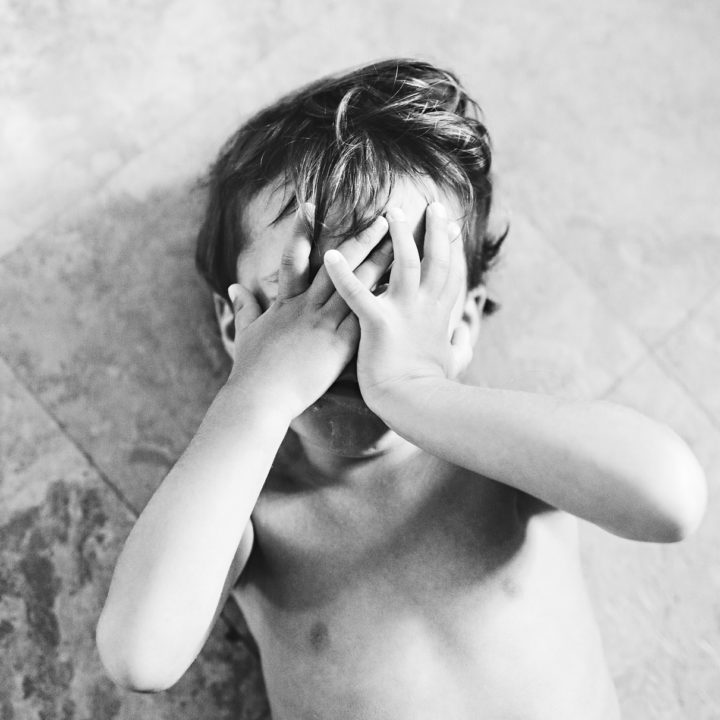
Photo by Stocksy
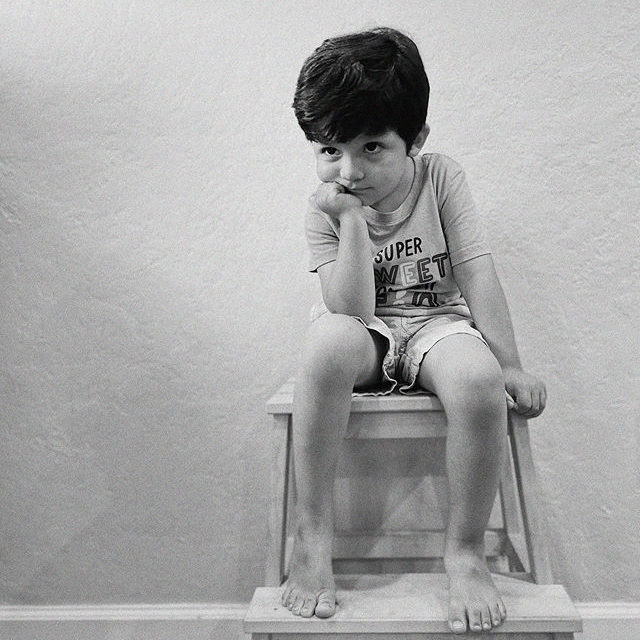
Photo by Polly LaRue
OK, so how early should we, as parents, approach the idea of discipline?
Discipline starts early on, before you can even believe it. The word is actually derived from the Greek root “to learn.” So if you think of it that way, it can start as early as birth. From the beginning of your baby’s life, think about discipline in terms of your role as a teacher and guide, not about control and punishment. Then, keep your language with your child to help them learn what to do, instead of telling them what not to do.
Can you share an example?
If you want them to keep food on the table or in their mouth, it isn’t “Don’t do that.” If they’re really young and they’re throwing food on the floor, you can say, “Look at that, when you throw food it goes PLOP!” And you pick it up. Then, after the first time, you say, “Yes, it goes plop and it stays on your tray and in your mouth.” So you really dont use a stern tone until when and if your kid gets in a dangerous situation, then use what is slightly perceived as stern to a child.
What do you mean by “slightly perceived as stern?”
If I say, “No touch. Danger.” when their hands are covering a socket, it definitely might be stern to a child, but it may not be stern to adult who’s used to a harsh household. You do want to speak with some compassion as they emerge into toddlers. Let’s say they pull someone’s hair. If you say sternly, “Don’t pull hair,” you’re potentially scaring them, but they probably wouldn’t do anything different except be terrified. But, instead you touch their hair and say, “It’s soft. Gentle. That’s how you play with hair.” Because typically they’re not pulling hair out of anger at 12 months old. They’re pulling hair because it’s, “Ooh what’s that?”
Now, if they’re 2 years old and pulling hair because they’re pissed, you keep their hands by their side. Then you take their hands off and say, “We don’t pull hair. That hurts.” So again, as they get older, you give more and more guidance. It starts early. And it also trains you, the parent to get what you want from your kid before you snap, which is easier as a baby than as they get older. So basically all you’re doing is imagining yourself as a guide and teacher and you use calm, clear explanations and physical as well as verbal cues. Lest that gets taken out of context, it’s “keep your food on your tray or in your mouth,” and you tap your mouth. It’s cause and effect. They’re little scientists.
“Imagine yourself as a guide and use calm, clear explanations and physical and verbal cues.”
What if your toddler is blatantly misbehaving on purpose?
Once they become toddlers, they’re testing boundaries. We all know that we have our ideal discipline story with our easier kids and then kids whose temperaments are more difficult. For those kids, it’s hard to keep your cool, and it becomes a cycle between parent and child, and the process of discipline seems quite a bit more challenging. So it’s not as though you wouldn’t approach all kids with positive discipline, but you’re helping what to do behaviorally and spending less time focusing on what not to do.
When they’re quite young, you want to catch them doing the behaviors to internalize. As they get older, you want to drop commenting so much so they constantly seek approval. When your 18 month old keeps their hands to themselves or shares a toy, you might say, “You gave your friend a turn, that’s so nice!” But when they get a little older, they know the rules and know what’s expected of them. If you continue to point out, they might keep needing that.
What happens if you do have an emotionally needy child?
It’s natural to use positive reinforcement when they’re young. It’s easy to tell them what to do, and praise them for doing it using immediate attention. You’ll get better behavior, which is good for important things like potty training or cleaning up after yourself. But if you have that kid who loves it, it may be that you need to pull it back as they get holder. Become more of the witness instead of the judge. So you can say, I see you made that painting. What did YOU think of it? So they value their own thoughts about it. Otherwise they’ll turn into praise junkies.
This feels like a strange question, but is It OK To Use The Word NO??!
There are mixed messages in the world about that word. As I always say, all feelings are welcome, all behaviors are not. But some behaviors are so unwelcome, you can say, “No, you may not hurt your brother.” The only thing is you still want to say why. Your message can also be NO without the word NO, because you want to keep your NO’s sacred. It often starts a fight unnecessarily. The word No is a power struggle, but your message is still NO.
What if my kid gets upset about EVERYTHING?!
Don’t try to fix the feeling. Let them feel it. You don’t need to make a dramatic event out of it. You can say, “When you’re done being sad, we can have dinner with you. Will a hug help?” It’s not making a big deal, but it’s a small acknowledgement of their feelings, but you’re not fixing it. Though it’s helpful to offer small solutions. If your child is freaking out about a cup, you can say, “Remember when you were upset about the color of your cup? Tomorrow, before I set the table with you, you can choose the color cup. We can set aside a green cup.”
This all sounds really hard…
Remember – discipline is a practice. As you practice, you obviously get better and better. You’ll integrate smaller practices into your day-to-day experiences with your child. You don’t want to inundate people with too much. Part of discipline is helping guide children with behaviors that help them throughout life. Certainly in the early years, it’s about being part of society, and then it’s what you and your family value. Also, part of it is about self-regulation of emotions and behaviors. So you can’t tell them how to feel, but you can give them the tools to manage their feelings a little better.
